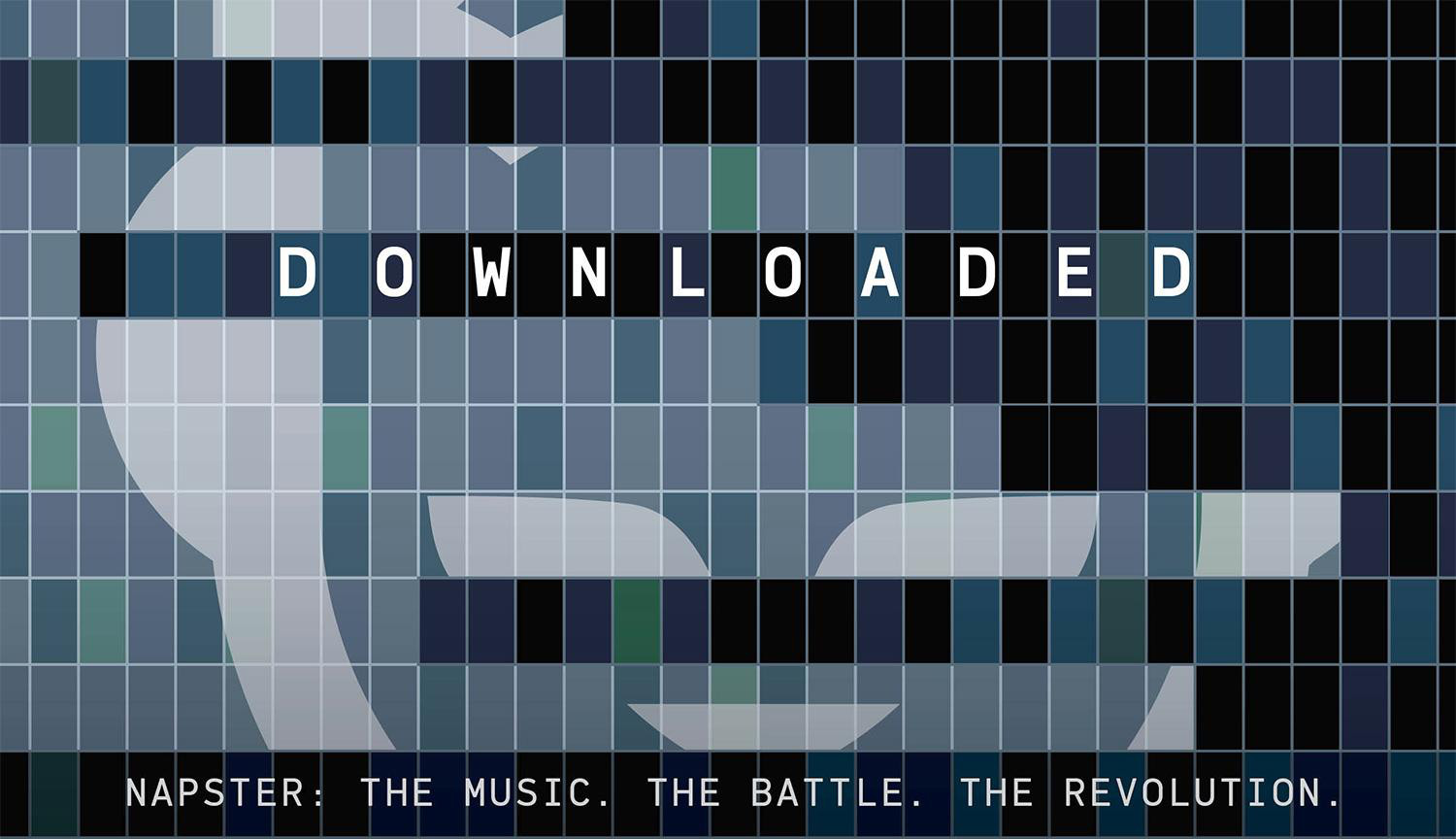
Alex Winter's two year old documentary Downloaded takes us back to a land of dial-up connection tones and gives us a chronicle of the spectacular rise and fall of internet music startup Napster in the late 90s and early noughties.
This documentary is not as indepth or as good as Print The Legend nor does it attempt to give us any satisfactory answers to the larger issues it raises such as the protection of Intellectual Property Rights, Fair Use and the equitable distribution of royalties between Song Writers, Distributors, Publishers and Musicians. However, notwithstanding these shortcomings what it does demonstrate is how quickly an established industry can be disrupted by changes to the rapidly moving technology landscape. The documentary bring us a tale of disruption from the perspectives of the creators and early employees of Napster, the Music Labels Bosses at the time, the musicians and the RIAA.
The recording industry, a once vibrant business that even drove technology innovations in the form on Vinyl Records, Cassettes and Compact Discs now lay dormant. Comfortably resting on its laurels and no longer satisfying its end customers and completely blind to the ripples that were about to be unleashed by two music loving undergrads. Oh how cruel and bitter life was to become, especially for those who owned the soon to be obsolete Music Stores. This documentary is about the birth of Napster and what unfolded afterwards.

The two most remarkable things that stroke me after watching this narrative were how relevant and unresolved the major issues still are even to this day and also how forward thinking the early team was with the technology and design of the software.
Angela Watercutter from Wired in her review describes just how prescient Napster really was. The questions the Napster team, once they decided to become a legitimate business, tried to solve around the model and royalties are still evident in today's world. A world in which artists' such as Taylor Swift boycott services like Spotify and big upcoming stars like Ed Sheeran exclaim that they are in the music industry to play live given that record sales are declining and revenues from downloads and streaming are insufficient.
While it's business model was flawed as the likes of LimeWire, Kazaa and eDonkey2000 can attest; even though the legal stratgey was unsound it still laid the ground rules. It demonstrated that there was a demand being unfulfilled and developed the early technology. More importantly, it created the foundations for the legal framework and showed which techniques not to pursue in courts when defending against rights holders. In fact, it could be argued that it gave Youtube and Google the legal platform to use the DMCA Safe Harbour amendments to protect themselves as indexers and not copyright infringers.
In addition, it made it clear the web was going to be a social environment where network effects would mirror real life connections and any company that could scale while offering personalized services would be a winner.
When it comes to the technology, we all need to remind ourselves that Napster was really one of the first commercial applications of Peer-to-Peer (P2P) Networks. It was the forefather of BitTorrent and today even Mircosoft will use P2P methods to deliver software updates to Windows 10.

What Jordan Ritter, Shawn Fanning and team did was truely amazing at the time. Indeed, it is rumoured that some of its early developers went on to help build iTunes once Napster folded. So as it turns Apple may have had Napster influence. Without Napster's disruption there may have been no iPod and hence no iPhone or iPad either.
Napster stood for and enabled — connecting like-minded people through the web, easy access to data, listening to music through computers — has all become part of our daily lives, even if it confused the newscasters interviewing Fanning and Parker at the time. WikiLeaks, iPods and Megaupload didn’t exist when they were building their file-sharing network, and in retrospect it’s clear to see just how far ahead of the curve they were.
What the team really lacked was some serious negotiation skills. That appears to be where the game was lost when no reasonable accommodation could be found between them and the companies that the RIAA represented. They should have discovered BATNA and read Negotiation Genius. Who knows how much more the world could have changed?
While Kevin Jagernauth from IndieWire is probably right when he says
the movie is really just a feature length "60 Minutes" segment.
Be that as it may it is still worth reliving the moment for those of us who were around. Watch this one on Netflix and revive those mp3 piracy filled hours spent downloading files in the early teen years or educate yourself on what it was like if you just weren't old enough.
What I know is that the internet we have come to love and enjoy today where we like, follow, share and stream owes a debt to the naivety of the Napster prodigies and robber barons alike of days yonder.
 Nneko Branche.
Nneko Branche.